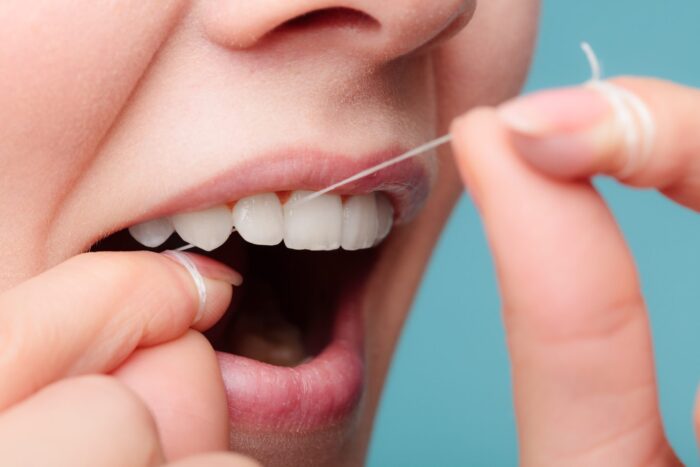Do you forget to floss when you brush your teeth? Flossing is more important than you may think. Brushing and flossing your teeth and gums twice a day helps minimize harmful bacteria in the mouth and prevents further oral health issues. If you often forget to floss but want to floss more, we welcome you to learn more about how you can improve your oral hygiene. Here we will review different types of dental floss, the benefits of flossing, and how we can supplement oral health routines in our Arlington Heights, IL office.

Importance of Flossing in Arlington Heights, IL
Flossing can prevent a myriad of problems, from gum disease to cavities. Harmful bacteria feed on food particles left in the mouth. When feeding on sugars and starches, harmful bacteria produce digestive acids that can wear down the tooth enamel. These bacteria also inflame and irritate the gum tissue.
Over time, plaque can build on and between teeth. Plaque is a sticky bacterial film that hardens to form tartar. In addition to brushing, flossing is important because it removes bacteria and food particles that can hide between teeth. Flossing before brushing can also provide a better clean.
It is more difficult to remove tartar at home, which is why regular dental appointments are key. At regular dental visits, our hygienists provide cleanings that help remove hardened bacteria buildup. Professional dental cleanings help minimize the spread of bacteria and prevent gum disease and tooth decay.
Which Type of Floss Should I Use?
There are four main types of dental floss you can choose from:
- Traditional Waxed and Unwaxed Floss: The most common types of floss, traditional or simple dental floss, can get the job done! Unwaxed floss is thinner than waxed floss. Waxed floss is less likely to break and is typically stronger.
- Dental Tape: Wider and flatter than traditional floss, dental tape is made of waxed nylon or polythene material. This floss is also stretchier and simpler to use if you find it difficult to hold traditional floss.
- Floss Picks: These picks are made of a piece of plastic and a small bit of floss between a plastic arch. While they seem more convenient, floss picks can’t reach all of the angles that dental tape or traditional floss can.
- Water Flosser: Patients with dental restorations and braces benefit from water flossers. This type of floss uses water pressure to remove debris from between teeth.
Each patient is different and can benefit from variations in their floss. Tooth shapes, larger or smaller tooth gaps, and natural teeth or porcelain restorations all require different types of floss for the best results. If you have questions about the right floss for your needs, call AH Smiles at (847) 230-9703. Feel free to schedule a dental appointment with Dr. Brent Engelberg online.
